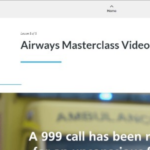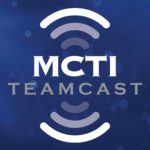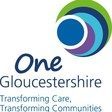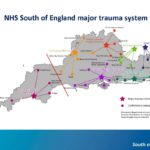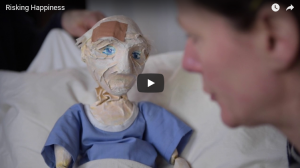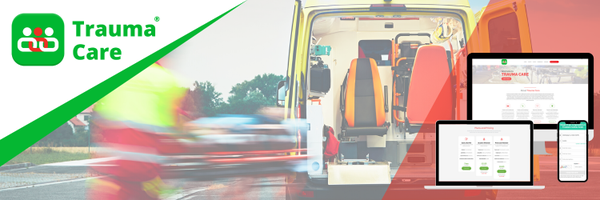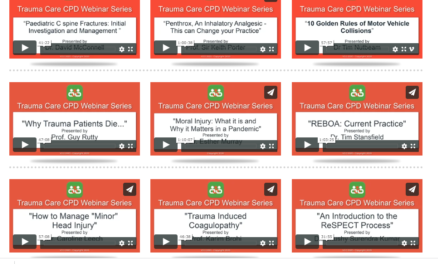Learning & Development – ‘The Ambulance Podcast’
This set of podcasts have been developed & produced by the L&D team to delve into the non-clinical side of Ambulance life
They were commissioned by SWASTCPD and produced with the help of the Drive project to and feature L&D staff and others exploring some challenging issues that are part and parcel of Ambulance life.
They are hosted on the SWASFT app -download via the QR code on the intranet – (you will need a SWASFT device to open this link). They will also be hosted on the ParaPass app v soon as well.
(Click here to get your full ParaPass CPD access)
See below for the full descriptions of each episode
Episode 1: Resilience
In this episode we speak with LDOs Nathan Wilson and Steve Knowles about challenging times on the job, and the importance of getting support when you need it.
This episode deals with difficult issues around suicide. If you find you are affected by any of the issues discussed, you can find support with the SWASFT Staying Well Service . They can offer confidential immediate access to support service for all our people, including CFRs and student paramedics. If you or someone you know is struggling with suicidal thoughts, you can reach out to The Listening Place or Support After Suicide. If you are struggling with your mental health, you can find a wide range of support from the Staying Well Service and charities such as Mind.
Episode 2: In the Hub
In this episode we speak with LDO Rosie Griffiths and LDM Lesley Altoft about the challenges of working in the hub, and the relationship between clinicians in the hub and paramedics on the road.
If you are affected by any of the issues discussed in this episode, you can find support with the SWASFT Staying Well Service They can offer confidential immediate access to support service for all our people, including CFRs and student paramedics. If you or someone you know is struggling with suicidal thoughts, you can reach out to The Listening Place or Support After Suicide. If you are struggling with your mental health, you can find a wide range of support from the Staying Well Service and charities such as Mind.
Episode 3: Clinical Decisions
In this episode we speak with HART paramedic Matt Metcalf, and A&E Doctor Sam Copson about making difficult clinical decisions and dealing with the aftermath of the hard choices, often with limited information and in a short space of time.
If you are affected by any of the issues discussed in this episode, you can find support with the SWASFT Staying Well Service. They can offer confidential immediate access to support service for all our people, including CFRs and student paramedics. If you or someone you know is struggling with suicidal thoughts, you can reach out to The Listening Place or Support After Suicide. If you are struggling with your mental health, you can find a wide range of support from the Staying Well Service and charities such as Mind.
Episode 4: Family & the Frontline
In this episode we speak with LDOs Katie Williams and Charlotte Ryan about the challenges of having a family whilst working a frontline job. This episode discusses IVF and includes references to difficult births and miscarriage.
If you are affected by any of the issues discussed in this episode, you can find support with the SWASFT Staying Well Service. They can offer confidential immediate access to support service for all our people, including CFRs and student paramedics. If you are struggling with your mental health, you can find a wide range of support from the Staying Well Service and charities such as Mind.
For support specifically around miscarriage and premature birth, you can also reach out to Tommy’s the Baby Charity or Bliss.
Episode 5: Breaking Bad News
In this episode we speak with LDO Charlotte Davies and LDM Lesley Altoft about breaking bad news – how to prepare for it, the experience of doing it, and how to look after yourself afterwards.
If you are affected by any of the issues discussed in this episode, you can find support with the SWASFT Staying Well Service. They can offer confidential immediate access to support service for all our people, including CFRs and student paramedics. If you or someone you know is struggling with suicidal thoughts, you can reach out to The Listening Place or Support After Suicide. If you are struggling with your mental health, you can find a wide range of support from the Staying Well Service and charities such as Mind.
Episode 6: Being a Student
In this episode we speak with paramedic and LDO Charlotte Ryan and student paramedic Christina Green about the joys of being a student and newly qualified paramedic, looking at negotiating student life, the mentor/mentee experience, and how everyone can help create a supportive learning environment.
If you are affected by any of the issues discussed in this episode, you can find support with the SWASFT Staying Well Service. They can offer confidential immediate access to support service for all our people, including CFRs and student paramedics. If you are struggling with your mental health, you can find a wide range of support from the Staying Well Service and charities such as Mind.
Episode 7: Studying with learning difficulties
In this episode we speak with Head of Equality, Diversity & Inclusion for SWASFT, Karen Holdsworth, and nurse and educationalist Lizzie Ryan about studying and working with learning support needs – about what the experience is like, what support is available, and how we can overcome any barriers that still persist.
If you are affected by any of the issues discussed in this episode, you can find support with the SWASFT Staying Well Service. They can offer confidential immediate access to support service for all our people, including CFRs and student paramedics. If you are struggling with your mental health, you can find a wide range of support from the Staying Well Service and charities such as Mind.
Episode 8: Diversity
In this episode we speak with newly qualified paramedic Nils Patel and nurse and educationalist Lizzie Ryan about diversity within the ambulance service – about perceived barriers to joining, the experience of training and working in the job.
If you are affected by any of the issues discussed in this episode, you can find support with the SWASFT Staying Well Service. They can offer confidential immediate access to support service for all our people, including CFRs and student paramedics. If you are struggling with your mental health, you can find a wide range of support from the Staying Well Service and charities such as Mind.
Episode 9: Stepping Away
In this episode we speak with LDO, Steve Knowles, and Alex Jamieson, CPD Team Leader about stepping away from the front line, whether by choice or necessity, the effect it can have, the change in identity and how to manage it all.
If you are affected by any of the issues discussed in this episode, you can find support with the SWASFT Staying Well Service. They can offer confidential immediate access to support service for all our people, including CFRs and student paramedics. If you or someone you know is struggling with suicidal thoughts, you can reach out to The Listening Place or Support After Suicide. If you are struggling with your mental health, you can find a wide range of support from the Staying Well Service and charities such as Mind.
Videos produced by SWASFT Specialist Paramedics in Critical Care & TEL (Technology Enhanced Learning) Team.
These resources can be used as supportive learning alongside the practical Airway CPD Workshops (to book see the link below), or as stand-alone self-directed study/CPD. These workshops are being delivered by SPCC’s in different areas and dates.
The videos cover the following topics:
- 999 Call – Systematic A to E Approach
- Basic Airway Manoeuvres
- Nasopharyngeal Airway
- I-Gell Supraglottic Airway
- Oropharyngeal Airway
- Foreign Body Airway Obstruction
Click Here to access the Airways videos
This series of five free webinars, provided by the College of Paramedics, will explore how to spot when something is wrong, tackle those difficult conversations, promote safe working spaces and more.
The topics which will be covered throughout these webinars include the following:
- Introduction to the issue of sexual harassment and inappropriate behaviour/culture in the ambulance service
- How to identify harassment and bullying
- How to speak out (for yourself and others) and having difficult conversations
- Tools to support self-care and build resilience
- The legal protections and formal routes available to employees
Click Here for more details and to watch the webinars
Podcasts and videos produced by the Norfolk Care Association
They have kindly shared their Dementia Training Videos – Adult Social Care, on their YouTube Channel – Norfolk & Suffolk Care Support
Click the link above or see resources details below for the full list
About DuratusUK
This website is a professional personal development coaching & mentoring service, set up and run by Garry Banford – a former UKSF veteran.
On the site are freely accessible podcasts, interviews and YouTube videos exploring personal development, problem solving, resilience and much more.
Interviews are with people from all walks of life, often leaders in their field or experts in their profession. The discussions focus on challenges overcome, strategies and mind-sets used to get where they needed to be, and how they coped with setbacks.
While a lot will be from different professions, there is a lot of transferable knowledge, (and some interesting stories!). We haven’t listened to them all, so please explore and let us know what you think.
You are welcome to get in touch with them to explore personal coaching, but this will need to be funded by you.
Mission Critical Team Institute Podcasts – click here for the page
We haven’t listened to all of these , but the ones we have definitely have some cross transferable knowledge and also make for an interesting listen either way.
There is a lot of knowledge drawn from military experiences in some of them, but don’t let it put you off. There are lessons and procedures that can be easily put into an Emergency Medical environment. (Please don’t start abseiling out of helicopters though, that’ll be covered on Dev Day 45).
Please let us know if there are any that you find particularly interesting.
Episodes – direct links and titles
#1 The Mission Critical Team Institute w/ Dr. Preston Cline
#2 Swarms, X-Teams, and Routine vs. Critical Communications
#3 The Physiology of Long Duration Effort w/ Dr. Andrew Huberman
#4 Residue & the Hard Path w/ Dr. Preston Cline
#5 Touching the Dragon w/ Jimmy Hatch
#6 Ten (10) Principles of Navigating Uncertainty w/ Dr. Preston Cline
#7 Emotional Athletics, Culture, and “Teaming” as a Sport w/ Daniel Coyle
#8 Communicating Through Story w/ Clare Murphy
#9 Coach Justin Langer on “walking excellence” and living “the reality” (not just “the dream”)
#10 Cleveland Brown’s Director of High Performance, Shaun Huls
#11 After Action Reviews w/ Coleman Ruiz and Dr. Preston Cline
#12 Solo Appalachian Trail Thru-Hiker and Combat Veteran, Trey Free on: “Making decisions and suppressing demons.”
#13 Mission BBQ CoFounders & Teammates, Bill Kraus and “Newt”
#14 Harry Moffitt, Director of MCTI_Australia & New Zealand Takes the Mic
There is also a podcast on Residue with an former UKSF member, now a Performance Coach – Gaz Banford on the Duratus Mind Podcast if you prefer a more UK spin on it!
The Duratus Mind website has some interesting podcasts about resilience and performance, speaking with several top athletes, Para-Olympians, Olympians, coaches and others.
Introduction to the ReSPECT process
This video has been produced by Gloucestershire Consultants Dr Tanya Deweymarn and Dr Emma Husbands. It explains the use of the ReSPECT form in Gloucestershire county and deals with common myths and misconceptions.
*Please note – the last couple of minutes is outdated and talks about the SWAST connector programme – this is no longer active so please don’t email in!*
Click Here to view the full video
The aim of the PROMPT Maternity Foundation is to reduce preventable harm for mothers and their babies.
The PROMPT Maternity Foundation provides a multi-professional training programme which was initially introduced to North Bristol NHS Trust. It has been shown to improve outcomes for real women and their babies. The introduction of PROMPT training at Southmead Hospital has resulted in:
Internationally, interest has grown and PROMPT training has been adopted in a number of countries outside of the UK. Many of these countries have conducted their own research trials and have demonstrated similar results to those achieved at Southmead Hospital, including:
- USA
- Australia
- Zimbabwe
- Philippines
PROMPT Maternity Foundation has produced a range of practical and informative videos hosted on You Tube for you to view.
2 Pre-Hospital PROMPT videos made in partnership with SWASfT are now live!
They can be found on the PROMPT home page or you can go straight to them below.
Normal Birth
PPH
Podcasts and videos produced by the PTN.
The PTN is a website, podcast and videocast with the aim of supporting education, training and sharing across the Peninsula Trauma Network.
Site content is edited by Tim Nutbeam and Jake Gluyas-Harris; Tim is a consultant in Emergency Medicine at the MTC and Jake is a Trauma Fellow working at the MTC.
These podcasts may change and be updated by the PTN – but here is the current selection (Oct 22)
Click here to go to the PTN Podcast page
-
An introduction to trauma care
-
Preparing for the trauma call and the first 10mins
-
Being a TTL
-
Human performance in trauma
-
Primary survey
-
Trauma RSI
-
Chest injury management
-
Pelvic trauma
-
Traumatic brain injury
-
Spinal injury
-
Open fractures
-
Frailty trauma
- Retrieval
This is a rare opportunity to watch a discussion about emergency services personnel responding to suicide and its impact. Particular attention is be paid to their experiences, perceived needs and the importance of receiving evidence-based training dealing with this sensitive issue.
You can find out more about Suicide Bereavement UK at www.suicidebereavementuk.com and Speakers Collective at www.speakerscollective.org
If watching this causes you distress and you would like to talk to someone, you may find it helpful to get in touch with:
- Survivors of Bereavement by Suicide (SOBS): Helpline: 0300 11 5065 Monday to Friday 9am-9pm
- Samaritans: Helpline: 116 123 (24 hours) Email: jo@samaritans.org (24 hours)
- Cruse Bereavement Care: Helpline: 0808 808 1677 Monday to Friday 9.30am-5pm Tuesday, Wednesday & Thursday 9.30am-8pm Weekends 10am-2pm
This Conversation is recommended for those working in suicide prevention/postvention/emergency services.
Click Here to watch the recording if the video does not work.
Risking Happiness film – A light-hearted but touching film joining a patient on their journey to hospital & back.
Jointly commissioning by Gloucestershire CCG and Gloucestershire County Council, ‘Risking Happiness’ was created by the Reckless Kettle Theatre Company and The Roses Theatre in 2015.
The characters and story of the play are fictitious, but the process of writing it drew from real people, situations and experiences.
The purpose of the play has been to stimulate conversations and promote healthy discussions about our attitude to risk in our daily lives – initially as professionals, but ultimately as individuals.
Access the film HERE or by clicking the image above.
Supraglottic airways episode
This episode is particularly relevant right now, and is well worth a listen. In this episode you’ll have a deeper think about advanced airway management and specifically supraglottic use in the pre-hospital and ED environment.
Many pre-hospital service have seen the removal of intubation from their scope of practice, and that’s understandably been received with mixed thoughts.
But this isn’t the end of ‘expert advanced airway care for all; in fact far, far from it… we’ve all heard people talking about ‘whacking in an i-gel’, but really utilising a supraglottic device to its maximal potential can make a huge difference to our critically unwell patients.
This episode will run through an overview of supraglottic devices, the evidence surrounding their use, patient selection, patient positioning and size selection, placing a supraglottic device, troubleshooting and finally ongoing ventilation with a supraglottic device.
Trauma Care Webinars are a great way to learn bite sized information in the comfort of your own home. Either take part in the interactive live event with key questions and answers or catch up with the recordings when you subscribe.
See below for an example of one of their great free webinars-
Please be aware that these videos may contain images of injuries and wounds and medical procedures on real people.
About Trauma Care
Trauma Care was founded in 1996 to address the need for commonly agreed standards of best clinical practice in the management of trauma. We aim to improve the outcome of the trauma victim by establishing best practice throughout the whole chain of care. We achieve this through education, research and publishing.
Membership is open to all medical disciplines – including clinicians, paramedics, nurses – and to members of the emergency services. No other organisation encompasses the diverse specialities involved in care of trauma victims from the moment of injury, to the return to active life.
Learn about the history of the NHS and how it all works and fits together. Additionally, learn about what it will look like in the future.
The course will help you understand the building blocks that make up the health care system in England through videos with experts from The King’s Fund, articles and quizzes. You will learn about the intricate parts that contribute towards the running of the fifth largest employer in the world.
Access the film HERE
The English health and care system can be confusing and complex. Here, the course brings together some of its most popular work to explain and explore this system, how it works and how it’s changing.
Covering everything from population health to NHS funding, our animations will help you understand the health and care system in England. Our nutshell explainers are quick-read guides that tell the story behind the figures to help you understand the NHS, health and social care in England
Access the film HERE
Recruitment of well trained and committed internationally educated AHP’s with an ethical and sustainable approach, can increase entry routes into healthcare, and provide a wealth of experience and diversity to our workforce
HEE aims to support employers to better understand the processes and potential of AHP international recruitment, as well as supporting the recruits themselves to adapt and flourish in our health services. These resources highlight a wealth of information and experience from across the NHS demonstrating the potential for a sustainable approach to AHP international recruitment.
Access the resource HERE .
Versus Arthritis are excited to be working with leading health care education provider Red Whale to deliver a series of free, interactive webinars covering some of the most common MSK conditions seen in primary care.
They are specifically designed to help improve your confidence and skills in supporting people with MSK conditions and to gain valuable CPD points. You can join the webinars live and have your chance to interact and ask questions or watch later ‘on demand’.
Available webinars include:
Osteoarthritis: primary care matters
Chronic Pain: why it can only be in the brain
Gout – how can we do it better?
Supporting rheumatology patients during COVID-19
MSK conditions: a remote assessment survival guide
Inflammatory arthritis: Early diagnosis and total control – what can we do in primary care?
Polymyalgia rheumatica and giant cell arteritis: The Primary Care guide
Access the webinars HERE
Many SWAST staff will already be familiar with The Resus Room’s podcasts, but for anyone who isn’t, this is an excellent resource delivered by some of ‘our’ (shared) colleagues.
They deliver podcasts on a variety of Emergency Medicine topics that you’ll use every day in and around the resus room, centred around evidenced based medicine and with reference to national and international guidelines.
People involved in TheResusRoom
Simon Laing an Emergency Medicine Consultant in the UK, based at the Bristol Royal Infirmary and a PHEM Consultant at Devon Air Ambulance Trust. He is the Airway Lead for The Royal College of Emergency Medicine; with particular interests in resuscitation, evidence based medicine and FOAMed.. He can often be found on a golf course trying to find those extra few yards….
Rob Fenwick an Advanced Clinical Practitioner at HEFT and Lead ACP, co-hosts the podcast. Rob has a back ground in pre-hospital care and a keen interest in immobilisation, extrication as well as evidenced based medicine.
James Yates is a Specialist Paramedic (Critical Care) with the Great Western Air Ambulance based in Bristol. In his pre-hospital career to date, James has worked nationally and internationally in a range of clinical and educational roles. He has an interest in education and simulation but would really like to be practising wilderness medicine in a remote corner of the world…
The technical brains behind the site is Nigel Taylor, web developer, designer and friend, with expertise in making the site what it is. Nigel’s site strata5.co.uk can be found here.
HEE AHP Return to Practice programme has been running for several years and recently extended its qualifying criteria to include overseas educated AHP clinicians eligible for HCPC registration
HEE AHP Return to Practice programme has been running for several years and recently extended its qualifying criteria to include overseas educated AHP clinicians eligible for HCPC registration, residing in England, and including those with refugee status and ‘right to reside’. If trained overseas and never formally registered with the HCPC, application via the international registrant’s pathway to the HCPC international registrant’s pathway is a pre-requisite step.
Access the resource HERE .


